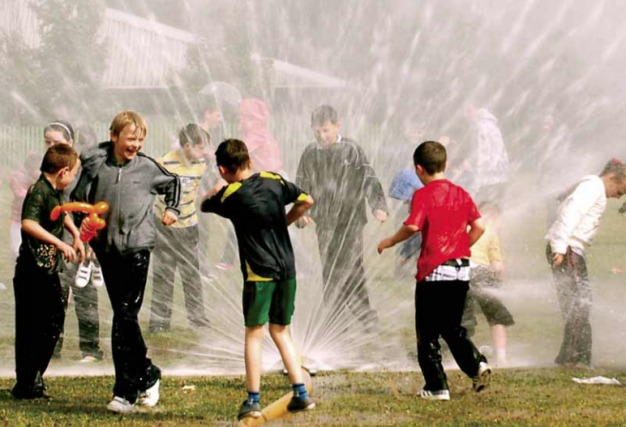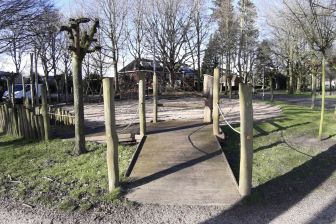
Delivering a ‘play plan’ for Dublin’s children
Dublin’s all-inclusive policy to put young people at the heart of the decision-making process has enabled the city to truly address the ‘play’ issue for its youngsters. It’s a dynamic approach that child professionals at the forthcoming Child in the City World Conference will be keen to learn more about from one of the city’s modern visionaries, Debby Clarke.
She is the city’s resident Play Development Officer, and it’s impossible to overstate the importance this role – not just Debby but her predecessor and surrounding team – in the creation of Dublin’s ‘Play Plan’ and forthcoming ‘play strategy’. Her role sits within Dublin City Council’s Parks and Landscape Services, which is headed up by Les Moore, the City Parks Superintendent.
Nevertheless she has been instrumental in promoting truly innovative play opportunities for children across the city, and so her appearance at the conference will undoubtedly provide a fascinating insight into how Dublin, a large and modern European capital, is becoming a true child-friendly city.
Insight
The 9th edition of the Child in the City World Conference takes place at the City Hall in Vienna from September 24-26, and Debby is just one of dozens of acclaimed speakers who will be sharing their experiences and examples of good practice to hundreds of child professionals visiting from all over the world.
“In 2012 Dublin City Council launched the Dublin City Play Plan; ‘Play Here, Play there, Play Everywhere’ 2012 – 2017, and in doing so became the lead agency in Ireland regarding the development of a multi-agency play plan,” says Debby. “This was shortly followed by the development of an implementation strategy to turn the vision of the plan into reality; Dublin will be a child friendly and playful city where all children and young people can enjoy their right to play.”
Progress
Debby will be appearing as part of the ‘Right to Play’ parallel session, which takes place on the morning of Wednesday September 26. Her paper will present a critical investigation into the progress which has already been made, and will pay particular attention to three core considerations. The first of these is the relationship between progress made and key recommendations from the United Nations Convention on the Rights of the Child (UNCRC) General Comment 17. This sets out the ‘right of the child to rest, leisure, play, recreational activities, cultural life and the arts (Article 31)’.
Secondly, she will ask what lessons can be learned from the Welsh Government’s Play Sufficiency Duty (2010), which forms part of the government’s anti-poverty agenda which recognises how children can have a poverty of experience, opportunity and aspiration, and can affect anyone. This will be looked at with specific reference to policy framework and guidance to support local authorities in assessing and securing sufficient play opportunities.
Implications
She will then examine the possible implications arising from points one and two in shaping the Dublin City Play Plan from 2017 onwards.
“The paper will also explore recommendations and a key set of actions to be included within a meaningful implementation strategy of a multi-agency play plan,” adds Debby. This will include an examination of how her findings can and will influence, shape and/or determine the future direction of the Dublin City Play Plan.
“My conclusion is that participating in this process has provided Dublin with the opportunity to appropriately address the issue of ‘Play’ for its young citizens,” says Debby. “Dublin City Council will continue to consult with children and young people in order to review the progress of the plan’s implementation and challenge the thinking around what play is and what it means to be a child-friendly and playful city.”




